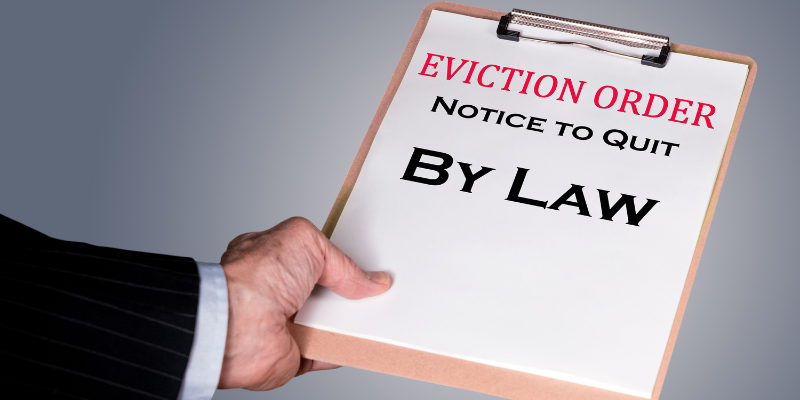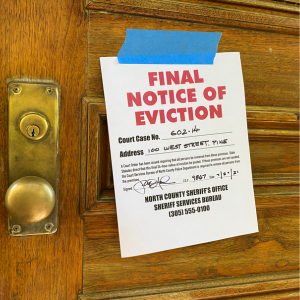
For both tenants and landlords, understanding the eviction timeline in Minneapolis, Minnesota, is crucial. Local laws and regulations dictate each step, so each step is less stressful when you know what to expect. Each step is accompanied by an explanation to minimize potential headaches. The goal of this guide is to reduce the potential headaches associated with the eviction process and to provide detailed descriptions of each phase, from notice periods to court hearings. Whether you are dealing with an eviction or are a property manager, knowing the eviction process is essential for protecting one’s interests and responsibilities in the housing market.
Key Highlights
- Understanding eviction timelines is crucial for tenants and landlords to navigate the process effectively in Minneapolis.
- Eviction notices mark the beginning of legal proceedings, necessitating clear communication of lease violations to tenants.
- Proper documentation and adherence to legal procedures are vital in preparing for court hearings.
- Mediation can offer a quicker resolution in eviction disputes, potentially preventing prolonged legal battles.
- Home sellers can benefit from understanding eviction processes to maintain property value and ensure a smooth sale.
Introduction to the Eviction Process in Minneapolis
For both landlords and tenants in Minneapolis, Minnesota, the eviction process can be a complex and overwhelming experience. Avoiding frustration and delays requires a comprehensive understanding of the complex legal system to navigate it effectively. Minnesota does provide some guidance; state laws governing the eviction process detail the requirements for notice, the steps for court, and the enforcement of judgment eviction laws. Landlords must understand and comply with these laws to ensure that evictions are conducted legally, while tenants should be aware of the extent of their legal protections under state law.
This post will analyze timeframes around the process in both Minnesota and Minneapolis. Since timeframes will vary due to the nature of the lease violation, the responses of the violating parties, and the court’s schedule, rational predictions about the process can only be made if tenants and homeowners are aware of these challenges. Thus, adequate predictions of the timeframes in question will be made around lease violations. As obtained, timeframes will be described in detail and in sequence to facilitate rational predictions and the flow of the described process.
| Stage | Description | Timeframe | Factors Influencing Duration |
|---|---|---|---|
| Notice to Vacate | The landlord issues a formal notice to the tenant, requiring them to vacate the premises. | 7-14 days | Lease agreement terms, local laws |
| Filing of Eviction Complaint | If the tenant does not vacate, the landlord files an eviction complaint in court. | 1-2 weeks | Court processing times, completeness of documents |
| Court Hearing | A court date is set where both parties present their cases. | 2-4 weeks from complaint filing | Court schedule, availability of both parties |
| Judgment | The court renders a decision based on the hearing. | Immediately or within a few days | Complexity of the case, judge’s schedule |
| Execution of Writ of Recovery | If the court rules in favor of the landlord, a writ of recovery is issued for the eviction. | 7-14 days | Sheriff’s schedule, tenant’s response |
This summary table provides a clear overview of the eviction process in Minneapolis, highlighting the primary stages, their descriptions, typical timeframes, and factors affecting the duration.
Understanding Eviction Timelines
Both property owners and tenants in Minneapolis need to be aware of the duration of the eviction timeline. An eviction action is initiated when a lessee fails to comply with the lease’s conditions, thereby triggering the Minnesota eviction procedure. The type of lease violation, the tenant’s response, and even the judge’s schedule for the case will impact the duration. An eviction procedure typically begins with a notice, which states that the problem must be fixed or the tenant must vacate the property, and provides a timeframe that can be either immediate or 30 days, depending on the severity of the lease violation.
As soon as an action for eviction is filed, the court’s calendar is usually the deciding factor in determining how long it will take. They will typically have hearing dates between 8 and 10 days after the eviction action is filed. If the tenant decided to contest the eviction, then the process can easily take a long time through the dispositive motions and subsequent appeals. Uncontested cases, however, may resolve more quickly. Minnesota courts generally expedite eviction hearings to efficiently meet the needs of both parties.
Mediation serves to shorten the eviction process when both parties agree to use it to avoid further legal disputes, potentially including back rent, move-out stipulations, or the overall conditions of the eviction. In addition, adequate paperwork, including lease contracts, correspondence, and notice accounts, can significantly influence a party’s position and case, ultimately affecting the court’s determination and the overall eviction timeline. After eviction judgments are rendered, tenants are given a period of five to seven days to vacate.
If you’re considering whether to sell an investment property in Minneapolis, it’s important to understand the nuances of the eviction process. The timeline for eviction can be complex due to coordination among the parties involved, case administration, the court’s disposition, and the overall legal framework. Each party in the eviction process has the responsibility to properly manage the case and ensure that all required documentation is properly managed to achieve a fair and lawful outcome. Being aware of these factors can help property owners make informed decisions about selling their investment property while navigating local regulations.
For guidance or assistance with the eviction process in Minneapolis or anywhere in Minnesota, contact us today. Our team will help you understand your options, like selling your property, handling the paperwork, and ensuring the process moves forward smoothly and legally.
Initiating the Eviction: Key Steps
Compliant and effective eviction processes in Minneapolis begin with understanding the first appropriate actions outlined in the Minneapolis housing code. An eviction starts by serving the proper eviction notice. This document legally outlines to the tenant the lease agreement violations or conditions that require the tenant to vacate the property. This document initiates the legal eviction timeline, providing the tenants with the opportunity to remedy the situation or prepare to move within the legally prescribed period. This is the first step to evictions.
When landlords take prompt and appropriate actions to resolve disputes or breaches within a contract, this, to a significant extent, neutralizes the potential impact of a legal confrontation. Documenting the breach, communicating with the tenant, and, if necessary, addressing the legal complexities of both the state and the city will help resolve the situation in a legally sound manner. This will help ensure a lawfully sound resolution of the problem. Here, we will cover eviction notices and lease breaches so that we can cover all aspects of the basics of the lesson to gain a functional understanding of eviction.
The Role of an Eviction Notice

The recipient of an eviction notice formally begins the eviction process. It primarily serves as a means of communication between the landlord and the tenant. It informs the tenant of an infraction of the lease agreement as well as the appropriate timeframes to either correct the problem or leave the premises. It is also essential to comply with the conditions under the Minnesota notice law, as the notice may identify a lease violation, which could include unpaid rent or breach of the lease, allowing lease tenants an opportunity to respond.
The notice is also a legal document, not a procedural formality, and so has specific delivery methods mandated by the law in Minnesota. It must be either given to the tenant in person or posted to the premises if service of process is not possible, to ensure notification and prevent wrongful eviction claims. Disputes that may delay the process are best avoided by including accurate and complete information.
Understanding different types of legal notices and their functions is also essential for landlords. A “Pay or Quit Notice” pertains to non-payment of rent, while a “Cure or Quit Notice” addresses other lease violations, such as the presence of unauthorized pets or excessive noise. Failing to comply on the tenant’s part allows the landlord to initiate unlawful detainer actions to proceed with eviction.
Equally important is the passage of time itself. Having breaches of a lease addressed through notices and having prompt and reliable methods of delivery in place constitutes a record that will stand in a landlord’s favor if an eviction is contested later. These factors provide predictability to the eviction as well as clarity for both landlords and tenants on their respective rights and obligations.
Handling Lease Violations
The second part of the eviction process involves considering lease violations. Once breached, an unresolved lease prompts the landlord to act and to do so legally and swiftly to avoid disproportionate complications. Lease violations may vary in severity from simple noise complaints to significant, ongoing, and intractable rent delinquencies. Consequently, the actions of a landlord in response to an ongoing lease violation will directly impact the anticipated duration of the eviction process and its outcome.
The principal step is the collection of subsequent and relevant documentation. All communication should be recorded, including both spoken (in-person or by phone) and written (emails, letters, etc.) exchanges. These will establish the material facts to be used in court, and the documentation will help establish the pattern and severity of the infraction. Communication should be encouraged, and in most instances, conflict will be resolved without the need for eviction. This will foster a positive relationship and serve to avoid litigation.
Should the previous approaches fail, the landlord has the option of pursuing an eviction complaint. This complaint must specify the violation and include the necessary documentation. Engaging an attorney may help provide the needed documentation aligned with Minnesota statutes. Landlords should also keep in mind that tenants are entitled to their day in court to defend against eviction. Anticipating their potential arguments should be part of the landlord’s strategy.
Most importantly, enforcing lease terms is primarily an exercise in discretion. Proper documentation of the decision, along with respect for the legal framework, should enable the landlord to achieve their goal in an eviction scenario while giving the landlord the legal certainty that the process is fair.
After grasping the key strategies for addressing lease violations, landlords might find the following tips handy to prevent and manage these situations more efficiently:
– Establish clear communication channels with tenants from the outset to foster transparency.
– Ensure that all lease terms and conditions are stated clearly in writing to avoid misunderstandings.
– Regularly conduct property inspections to catch potential violations early.
– Maintain a detailed record of all interactions and notices related to lease violations.
– Offer mediation services to resolve disputes amicably before resorting to legal action.
– Educate tenants about the consequences of lease violations to deter non-compliance.
– Stay informed about local and state rental laws to ensure all actions are legally compliant.
These guidelines enable landlords to handle lease violations with confidence and fairness, promoting a harmonious relationship between landlords and tenants while safeguarding their property interests.
Legal Proceedings in Minneapolis Evictions

Both landlords and tenants must understand the Minneapolis eviction process legally. At a minimum, the district court system and summons must be understood, and court procedures mastered. It is the landlords, however, who trigger the eviction process, and they must legally document their procedures, from the notice to the complaint submission, to ensure they are legally airtight. Either the courts will delay the process or open the case for dismissal, which is why the procedures must be executed with precision.
A summons is standard protocol after an eviction action is filed. This requires both disputing parties to attend a hearing where they must present evidence and testify before a judge. Documentation will be the turning point. This includes contracts, records, and notices. A prepared case must align with the legal stipulations of the courts; otherwise, the case will be dismissed. This not only displays compliance but also reinforces credibility in the court.
The measures taken in these activities specify how quickly a resolution can be made, which affects both the property owners and renters. Knowing the activities in order helps ensure the process is fair and minimizes the risks associated with transparency. This eases dispute resolution and costly mistakes. The remainder of this document examines the most effective strategies for preparing for court hearings, the legal and best practices for conducting an eviction, and the steps to ensure an eviction is both successful and compliant with the law.
Preparing for the Court Hearing
Preparation for a court hearing is a crucial step in the eviction process, especially if you’re a property owner planning to sell your house for cash in Minneapolis and surrounding cities in Minnesota. For landlords, this means gathering all relevant documentation to support their claim—such as lease agreements, proof of served notices, tenant communications, and payment records. These documents establish both the lease breach and the landlord’s compliance with Minnesota law. A clear and organized presentation of this evidence can significantly influence the court’s decision.
Landlords should understand the requirements of the district court, including the scheduling of hearings, submission of evidence, and the appeals process. Although lawyers will advise on these matters and anticipate tenant defenses, such as improper notice or lease term issues, they will also assist landlords in anticipating potential tenant defenses.
In contrast, tenants should understand their rights as provided in the Minnesota statute, as well as evidence that includes, but is not limited to, rent receipts, correspondence, and documentation of property problems. It is also crucial to present their case to the court.
Even before the mediation disposition hearing, both sides understand the litigation risks and have the opportunity to negotiate and possibly walk away from litigation altogether. Clearly, mediation should be approached with a willingness to negotiate and settle, and this willingness should always be a factor that results in a better disposition outcome for all parties. Time and effort spent in preparation always positively impact the likelihood of achieving a balanced resolution. Effective planning, communication, and adherence to the law, all in the spirit of collaboration, work to the advantage of both landlords and tenants throughout the Minnesota eviction hearing process.
Executing an Eviction Action

In Minneapolis, evictions demand compliance with legal protocols. After the court ruling in the landlord’s favor, the eviction process shifts to obtaining a writ of recovery, a court document that grants the landlord the legal right to remove a tenant who refuses to leave. This document serves as a legal culmination of the eviction process, and the removal of the tenant is a court-ordered task.
Landlords should exhaust all options for voluntary compliance with tenants. Advance negotiations regarding timelines for moving out and ongoing talks are likely to facilitate a less combative transition, thus lessening the likelihood of damage to the property and disputes.
After the issuance of the writ of recovery, a landlord must work with the police to carry out a legal and peaceful eviction. Self-help eviction poses significant legal risks and potential claims of wrongful eviction, and it should be avoided.
Tenants need to understand what a writ of recovery entails and the timeline within which they must vacate their premises. If they do not comply with the removal order, they will be removed, and it will be noted on their record, which will impact their chances of getting future housing. Therefore, it is advisable to seek alternative housing and make arrangements with the landlord to avoid court. Tenants do, however, have the right to appeal an eviction order if there are valid procedural issues or new evidence comes to light. Such an appeal will need to be negotiated and discouraged if there are time or cost issues.
Ultimately, there is a need to complete an eviction with a high degree of care and attention to due process. Landlords who act within the law and treat their tenants humanely will protect their own interests. In contrast, tenants will understand their rights and, with the help of their advocates, be able to make an informed decision about whether to comply or appeal.
Protecting Tenant Rights During an Eviction
Protection of tenant rights within the scope of the eviction process is mandatory both legally and ethically in Minneapolis, Minnesota. Within the rent-paying ecosystem, tenants are essential, and understanding their rights and obligations is crucial for building leases, fostering landlord-tenant relationships, and ultimately, promoting interdependence. Also, misunderstandings and disputes may be avoided by protecting the legal rights of each party. A legally conscientious rental relationship ultimately supports a housing structure that is respectable, accountable, and transparent.
From the perspective of tenant rights and responsibilities, the structure is informative when considering the timelines of the eviction process. Expectations and legal rights that the tenant may assert empower the tenant to take the appropriate action. Knowledge of notice periods, court event timelines, and legal pleadings is a substantive tenant’s right necessary to stay the process and prevent eviction. Within the interdependence structure of tenant rights and responsibilities, the central theme is the need to engage legally and reposition legally within a continuum of eviction to stabilize the process.
K&G Investments provides guidance and support to ensure both landlords and tenants in Minneapolis understand and uphold their rights during the eviction process. We promote fair, transparent, and legally compliant resolutions that protect tenant rights while helping property owners navigate each step with confidence and integrity.
Understanding Tenant Rights and Responsibilities
Potential tenants in Minneapolis should carefully navigate the eviction process. Not all eviction laws in Minnesota include protections for tenants. Tenants receive a detailed eviction notice. This notice outlines reasons for eviction, including unpaid rent, lease violations, or other specified reasons. This notice, in a legal sense, protects the tenant from sudden disappearance. The law allows the tenant to address a grievance and prepare for the move-in in an organized manner. Minneapolis laws offer a grievance avenue to all tenants.
All tenants have the legal recourse to contest an eviction should they believe it’s unjust. In these cases, they can represent themselves and cross-examine the petitioner as well as provide evidence. This evidence can rebut and challenge the landlord’s claim. Evidence, such as rent receipts and correspondence, can significantly aid a tenant when they are prepared with their defenses and may be used as evidence.
Alongside their rights, tenants must also uphold their responsibilities, including paying rent on time, adhering to lease terms, and maintaining the property. Failure to do so can result in eviction proceedings and negatively impact future rental opportunities. Open communication with landlords about potential issues and prompt resolution of disputes can prevent misunderstandings and strengthen tenant-landlord relationships.
The availability of mediation, legal advocacy, and legislation that enables tenants to access advocacy organizations to inform them of their rights and assist them in exercising those rights illustrates the support options available to tenants in Minnesota. This enables them to avoid a potential dispute that is likely to escalate. A tenant is expected to prevent the disruption of an eviction by having a clear understanding of their rights and responsibilities. Such an understanding, coupled with a proactive, communicative, and outward disposition, undeniably motivates the tenant to believe in and fairly participate in the process and defend their right to housing.
Tips for Home Sellers in Navigating Evictions
Selling a home while handling an eviction can be difficult, but knowing the ins and outs can help you sell the property quickly and for a reasonable price. Focus on eviction notices, paying attention to the details: a “Pay or Quit” notice for nonpayment of rent and a “Cure or Quit” notice for lease violations. These and any other eviction notices must be precise and properly served to be enforceable.
Regardless of the legal stage, maintain a record of all correspondence, notices, and payments, including informal ones. Well-organized records strengthen your position and help resolve the matter more quickly. Understanding How Long the seller can stay in the House is also crucial, as it affects negotiations and move-out timing. Strategies like “cash for keys” can save time and minimize property damage.
Mediation is another effective option. It allows both parties to negotiate solutions, such as payment arrangements or move-out dates, without lengthy court involvement. This approach can save time, money, and stress.
Sellers should also stay updated on Minneapolis eviction laws and tenant rights to avoid legal missteps. Knowing the regulations helps prevent wrongful eviction claims and strengthens your position in the event of disputes. Consulting an experienced attorney ensures compliance and prepares you for court procedures if needed.
In summary, handling evictions as a seller requires accuracy, thorough documentation, and a clear understanding of the process. By combining legal diligence with practical negotiation—and seeking help from a cash for houses company in Bloomington, Minneapolis, and other cities in Minnesota—you can resolve issues efficiently, preserve your home’s condition, and present buyers with confidence in a smooth transition process.
Understanding the eviction timeline in Minneapolis is crucial for both tenants and landlords, as it ensures that all parties are prepared and informed. While the process can typically take several weeks, factors such as court schedules and compliance with legal protocols can influence the duration. For landlords, it is essential to adhere to Minnesota state laws to expedite the process, while tenants should be aware of their rights and options. Whether you’re looking to minimize disruptions or protect your housing stability, staying informed and seeking legal advice can make navigating this complex process more manageable.
FAQs:
What is the significance of understanding the eviction timeline in Minneapolis?
Understanding the eviction timeline is crucial for both tenants and landlords in Minneapolis to ensure compliance with local laws and to prepare for each stage of the eviction process. This knowledge helps mitigate stress and manage expectations regarding notice periods, court hearings, and possible outcomes.
What initiates the eviction process in Minneapolis?
The eviction process in Minneapolis begins with an eviction notice, a formal communication from the landlord to the tenant indicating a breach of the lease agreement. This notice specifies the lease violation and provides a timeframe for tenants to address the issue or vacate the property.
How can mediation impact the eviction process?
Mediation can offer a quicker resolution to eviction disputes by facilitating a mutually agreeable settlement between landlords and tenants. Successful mediation can prevent prolonged legal battles and significantly shorten the eviction timeline.
What documentation is necessary for landlords during the eviction process?
Landlords need to prepare detailed documentation when pursuing an eviction. This includes lease agreements, proof of eviction notice delivery, tenant communications, and evidence of rental payments. These documents support the landlord’s case in court during the eviction process.
What rights do tenants have during the eviction process in Minneapolis?
Tenants in Minneapolis have the right to receive a clear and formal eviction notice detailing the reasons for eviction. They also have the right to contest the eviction in court, where they can present evidence or argue inconsistencies in the eviction notice or lease terms.
Do you need to sell your house? Sell it quickly, avoid costly repairs, or prefer a hassle-free sale. K&G Investments is here to help. We offer fair cash offers, handle all the details, and make the process seamless. Ready to sell or have questions? Call us at (612) 400-8070 for a no-obligation offer. Get started today!
Helpful Minneapolis Blog Articles
- Selling Inherited Property With Multiple Owners In Minneapolis, MN
- Intriguing Real Estate Facts About The Twin Cities Housing Market
- Understanding FSBO Costs For Home Sellers In The Twin Cities
- How To Minimize Closing Costs In Twin Cities
- Sell Your House In The Twin Cities When Behind On Mortgage Payments
- FHA Mandatory Repairs in Minneapolis, MN
- Refinance a House After Divorce in Minneapolis, MN
- Inherited House with Sibling in Minneapolis, MN
- How to Stage a House for Sale in Minneapolis, MN
- Selling an Old House in Minneapolis, MN
- Selling a House With Solar Panels in Minneapolis, MN
- How Long Does an Eviction Process Take in Minneapolis, MN

